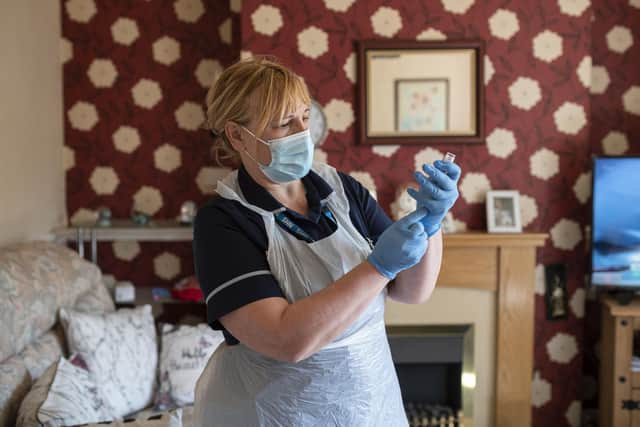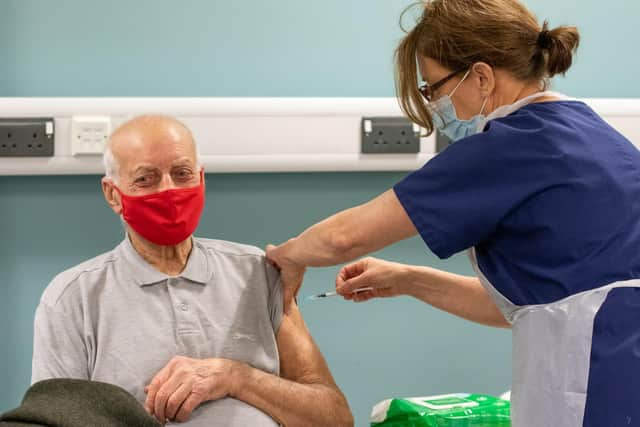Care home staff and pregnant women among 5,000 in Wakefield to reject Covid vaccine
and live on Freeview channel 276
Pregnant women, care home staff and people citing "religious and ethical reasons" are among those to have turned down the vaccine, local health chiefs have said.
Figures disclosed at a meeting of Wakefield s Covid recovery board on Tuesday revealed that 4,782 local residents have declined the jab.
Advertisement
Hide AdAdvertisement
Hide AdThe NHS says it's still on track to offer every adult in the district their first dose by the end of July, with 180,000 local people having had at least one.


The board was told Wakefield has remained "ahead of the curve" in administering the vaccine compared to other areas.
But asked about those who've chosen not to be vaccinated, the deputy chief officer of Wakefield Clinical Commissioning Group (CCG), Pat Keane, said work was being done to try to dispel falsehoods about the jab.
He said: "We still have a reasonably high rate of care home staff who've declined it.
Advertisement
Hide AdAdvertisement
Hide Ad"We've looked into the data and quite a significant number within the NHS are pregnant ladies.


"There are some who've declined it for religious and ethical reasons and where that's the case we are following that up again, because we want to do some myth-busting.
"There are myths out there. For example there's one that the vaccine is grown in an egg - it isn't.
"Where we see those cohorts, we are following that up."
Mr Keane said he wanted vaccination take-up to reach "as close to 100 per cent as possible", but added: "Clearly at the end of the day, it's still an individual choice.
Advertisement
Hide AdAdvertisement
Hide Ad"But we want to make sure people have as much information as possible, so that it's an informed choice and not perhaps based on myths and anecdotes that might influence them."
Local Democracy Reporting Service